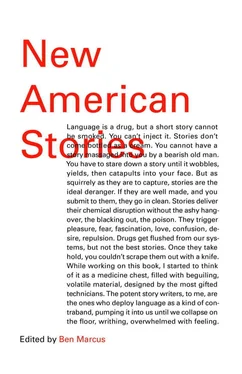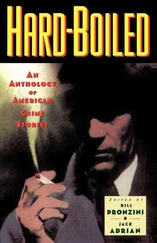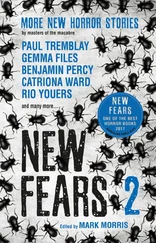—
It was Feliks Zuber, the oldest inmate at the camp, who’d chosen the children’s program for viewing. Feliks was here every day now, front row center, carrying with him a sentence of seven hundred and twenty years. He liked to turn and nod at those nearby, making occasional applause gestures without bringing his trembling hands into contact, a small crumpled man, looking nearly old enough to be on the verge of outliving his sentence, tinted glasses, purple jumpsuit, hair dyed death black.
The length of his sentence impressed the rest of us. It was a term handed down for his master manipulation of an investment scheme involving four countries and leading to the collapse of two governments and three corporations, with much of the money channeled in the direction of arms shipments to rebels in a breakaway enclave of the Caucasus.
The breadth of his crimes warranted a far more stringent environment than this one but he’d been sent here because he was riddled with disease, his future marked in weeks and days. Men were sometimes sent here to die, in easeful circumstances. We knew it from their faces, mainly, the attenuated range of vision, the sensory withdrawal, and from the stillness they brought with them, a cloistered manner, as if bound by vows. Feliks was not still. He smiled, waved, bounced and shook. He sat on the edge of his chair when the girls delivered news of falling markets and stunned economies. He was a man watching an ancient truism unfold on wide-screen TV. He would take the world with him when he died.
—
The soccer field was part of a haunted campus. A grade school and high school had been closed because the county did not have the resources to maintain them. The antiquated buildings were partly demolished now, a few wrecking machines still there, asquat in mud.
The inmates were glad to keep the field in playable condition, chalking the lines and arcs, planting corner flags, sinking the goals firmly in the ground. The games were an earnest pastime for the players, men mostly middle-aged, a few older, two or three younger, all in makeshift uniforms, running, standing, walking, crouching, often simply bending from the waist, breathless, hands on knees, looking into the scuffed turf where their lives were mired.
There were fewer spectators as the days grew colder, then fewer players. I kept showing up, blowing on my hands, beating my arms across my chest. The teams were coached by inmates, the games refereed by inmates, and those of us watching from the three rows of old broken bleacher seats were inmates. The guards stood around, here and there, watching and not.
The games became stranger. Rules were invented, broken and abridged, a fight started now and then, the game going on around it. I kept waiting for a player to be stricken, a heart attack, a convulsive collapse. The spectators rarely cheered or moaned. It began to feel like nowhere, men moving in the dreamy distance, linesmen sharing a cigarette. We walked across the bridge, watched the game, walked back across the bridge.
I thought about soccer in history, the inspiration for wars, truces, rampaging mobs. The game was a global passion, spherical ball, grass or turf, entire nations in spasms of elation or lament. But what kind of sport is it that disallows the use of players’ hands, except for the goalkeeper? Hands are essential human tools, the things that grasp and hold, that make, take, carry, create. If soccer were an American invention, wouldn’t some European intellectual maintain that our historically puritanical nature has compelled us to invent a game structured on anti-masturbatory principles?
This is one of the things I think about that I never had to think about before.
—
The notable thing about Norman Bloch, my bunkmate, was not the art that used to hang on his walls. What impressed me was the crime he’d committed. This was itself a kind of art, conceptual in nature, radical in scale, a deed so casual and yet so transgressive that Norman, here a year, would be spending six more years in the camp, the bunk, the clinic, the meal lines, in the squalling noise of the hand dryers in the toilets.
Norman did not pay taxes. He did not file quarterly reports or annual returns and he did not request extensions. He did not backdate documents, establish trusts or foundations, open secret accounts or utilize the ready mechanisms of offshore jurisdictions. He was not a political or religious protester. He was not a nihilist, rejecting all values and institutions. He was completely transparent. He just didn’t pay. It was a kind of lethargy, he said, the way people avoid doing the dishes or making the bed.
I brightened at that. Doing the dishes, making the bed. He said he didn’t know exactly how long it was since he’d last paid taxes. When I asked about his financial advisers, his business associates, he shrugged, or so I imagined. I was in the top bunk, he was in the bottom, two men in pajamas, passing the time.
“Those girls. Pretty amazing,” he said. “And the news, especially the bad news.”
“You like the bad news.”
“We all like the bad news. Even the girls like the bad news.”
I thought of telling him that they were my daughters. No one here knew this and it was better that way. I didn’t want the men in the dorm looking at me, talking to me, spreading the word throughout the camp. I was learning how to disappear. It suited me, it was my natural state, day by day, to be phantasmal again.
Best not to speak of the girls.
Then I spoke of them, quietly, in six or seven words. There was a long pause. He had a round face, Norman, with a squat nose, his bushy hair going gray.
“You never said this, Jerry.”
“Just between us.”
“You never say anything.”
“Just to you. No one else. It’s true,” I said. “Kate and Laurie. I sit and watch them and it’s hard to understand how any of this happened. What are they doing there, what am I doing here? Their mother writes the reports. She didn’t tell me this but I know it’s her. She’s masterminding the whole thing.”
“What’s she like, their mother?”
“We’re legally separated.”
“What’s she like?” he said.
“Fairly smart, like in a cutting-edge way. Sneaky sort of pretty. You have to pay attention to see it.”
“You still love her? I don’t think I ever loved my wife. Not in the original meaning of the word.”
I didn’t ask what he meant by that.
“Did your wife love you?”
“She loved my walls,” he said.
“I love my kids.”
“You love their mother too. I can sense it,” he said.
“From where, the lower bunk? You can’t even see my face.”
“I’ve seen your face. What’s to see?”
“We fell apart. We didn’t drift apart, we fell apart.”
“Don’t tell me I’m not right. I sense things. I read into things,” he said.
I looked into the ceiling. It had rained for several hours and I thought I could hear traffic noise on the wet highway, cars racing beneath the overpass, drivers leaning into the night, trying to read the road at every flex and bend.
“I’ll tell you what it’s like. It’s like they’re playing a game,” he said. “All those names they’re saying. The Hang Seng in Hong Kong. That’s funny to a kid. And when kids say it, it’s funny to us. And I’ll make you a bet. Plenty of kids are watching that report and not because it’s on a kids’ channel. They’re watching because it’s funny. What the hell’s the Hang Seng in Hong Kong? I don’t know. Do you know?”
“Their mother knows.”
“I’ll bet she does. She also knows it’s a game, all of it. And all of it’s funny. You’re lucky,” he said. “Terrific kids.”
Happy here, that was Norman. We’re not in prison, he liked to say. We’re at camp.
Читать дальше










![Женя Джентбаев - neo futura [stories]](/books/692472/zhenya-dzhentbaev-neo-futura-stories-thumb.webp)

